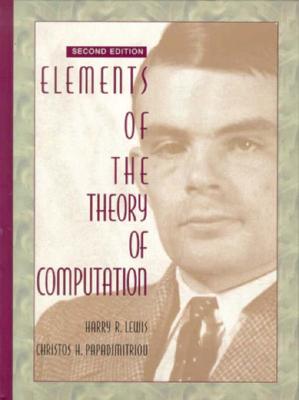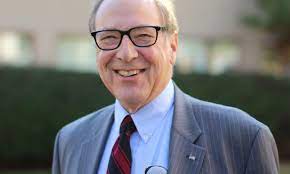

 Pearson
Pearson
Elements of the Theory of Computation


Key Metrics
- Harry Lewis
- Pearson
- Paperback
- 9780132624787
- 9.1 X 6.9 X 0.8 inches
- 1.35 pounds
- Mathematics > Logic
- English
 Secure Transaction
Secure TransactionBook Description
Lewis and Papadimitriou present this long awaited Second Edition of their best-selling theory of computation. The authors are well-known for their clear presentation that makes the material accessible to a a broad audience and requires no special previous mathematical experience. KEY TOPICS: In this new edition, the authors incorporate a somewhat more informal, friendly writing style to present both classical and contemporary theories of computation. Algorithms, complexity analysis, and algorithmic ideas are introduced informally in Chapter 1, and are pursued throughout the book. Each section is followed by problems.
Author Bio
Harry Lewis entered Harvard College in the fall of 1964. Having made no great progress despite his strenuous efforts in mathematics, physics, drama, and lacrosse, he stumbled upon computer programming through a part-time job in a Harvard psychology laboratory, and fell in love with the emerging field. Lewis’s undergraduate thesis, written under the direction of computer graphics pioneer Ivan Sutherland, was on handwriting recognition, parsing handwritten mathematical notation, and their use in experimental mathematics. Lewis graduated from Harvard in 1968, summa cum laude in Applied Mathematics.
During the Vietnam War, Harry Lewis served for two years as a commissioned officer of the US Public Health Service. He served at the National Institutes of Health in Bethesda, Maryland, doing work on image processing and on systems and application programming. He spent the academic year 1970-71 in Europe as Frederick Sheldon Traveling Fellow of Harvard University. Lewis returned to Harvard to begin his graduate study in the fall of 1971 and was awarded the PhD in Applied Mathematics in 1974. His PhD thesis was written under the direction of philosophy professor Burton Dreben, on the subject of computational unsolvability in mathematical logic.
Upon receiving his PhD, Lewis joined the Harvard faculty. He became Gordon McKay Professor of Computer Science in 1981. From 2003–2008 he was honored with the title of Harvard College Professor in honor of his teaching excellence.
Lewis is the author of numerous books and articles on various aspects of computer science. In the years since he joined the faculty in 1974, he has helped launch thousands of Harvard undergraduates into careers in computer science. His book about higher education, Excellence Without a Soul: Does Liberal Education Have a Future? has appeared in a paperback edition (PublicAffairs, 2007). The hardcover edition was a Boston Globe best-seller and the subject of favorable reviews in both the Boston Globe and the Wall Street Journal. It has been translated into Chinese (in both Taiwanese and mainland editions) and Korean. A book on the origins and public consequences of the digital information flood, coauthored with Hal Abelson and Ken Ledeen, appeared in 2008 (Blown to Bits: Your Life, Liberty, and Happiness After the Digital Explosion, Addison-Wesley). It has been translated into Russian (under the title Ataka Bitov) and Chinese. His most recent book, co-edited with Ellen Condliffe Lagemann, is entitled What is College For? Lewis travels regularly to Hong Kong, where he serves as an external examiner for the Common Core Curriculum of Hong Kong University, and he has written several articles for the South China Morning Post.
From 1995-2003 Lewis served as Dean of Harvard College. In this capacity he oversaw the undergraduate experience, including residential life, career services, public service, academic and personal advising, athletic policy, and intercultural and race relations. He is a long time member of the College’s Admissions Committee. In addition to teaching a variety of courses in Computer Science, Lewis offers a Freshman Seminar on Amateur Athletics, exploring the social history of sports in America and especially at Harvard.
Lewis has been married since 1968 to Marlyn McGrath. They live in Brookline, Massachusetts and Bigfork, Montana and have two daughters, Elizabeth and Anne. Lewis is a graduate of the Roxbury Latin School, the oldest school in continuous existence in North America (founded 1645). When he is not worrying about the state of American education or the unforeseen consequences of digital technology, he worries instead about the Red Sox.
Source: Harvard School of Engineering and Applied Science
Videos
No Videos
Community reviews
Write a ReviewNo Community reviews